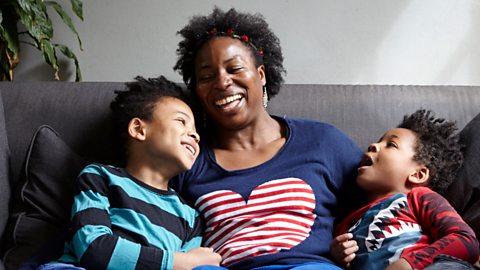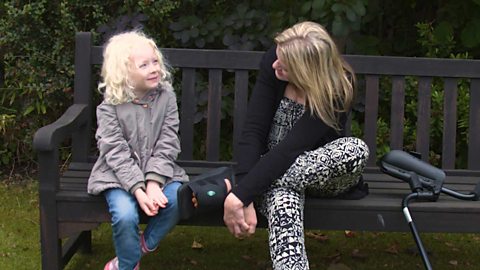We spoke to a number of families from a range of backgrounds and asked them to tell us in their own words what they would like people to know about their experiences of racism, the conversations they'd had with their children about race and their experiences as parents.
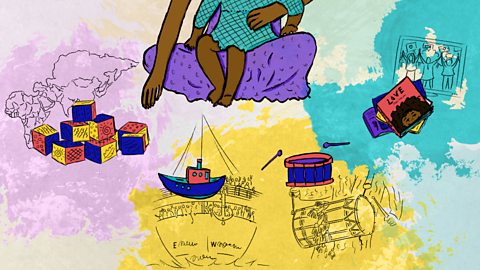
Lamar
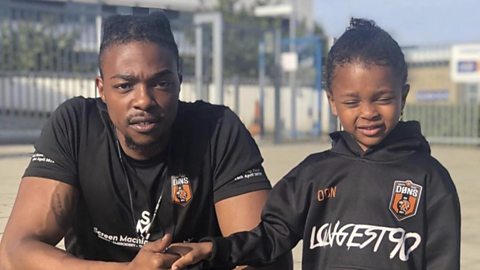
ãThe main thing for me is to build my son Kaylanãs understanding of racism, because I believe the more you understand when it comes to anything in life, the better equipped you are. I was brought up in a household that was always open and honest ã and I am with my son too; weãre absolutely open with one another about anything and everything. I donãt dodge questions but equally Iãm trying not to expose him to too much too soon. Iãm helping build his mindset. Kaylan is taught self-confidence and self-love in order to understand that being different in a predominantly white area doesnãt mean heãs inferior. He understands his colour and is learning about black history, mostly at home as information isnãt as readily available in his school. I believe that racism is taught, so I tell him that although he might sometimes get looked at differently, itãs not due to people being bad. Sometimes people know no better. He absolutely understands at the age of 5 that love and tolerance are everything.ã

Faraz
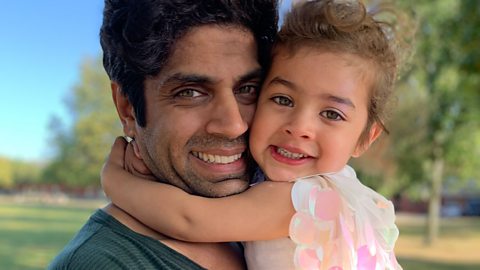
ãWhen my daughter Iyla was born three years ago, she was truly special. The first girl in my family for generations, and the first to be born with dual heritage ã a mix of my South Asian roots and my wifeãs White British background. We are hopeful that her DNA will go beyond just chemistry and that it will open doors for her to taste authentic, multicultural experiences in a joyful and colourful way. But we also know that she will face challenges of identity as she grows up. It is a scary reality that some ignorant people ã from all around the world ã may judge her negatively because of her awesome hair, beautiful eyes or golden skin. To ensure that sheãs never knocked back, we believe that it is our duty to instil her with confidence and compassion. Confidence to know that she is not an outsider, but a trailblazer. Compassion that others should be treated as equals, regardless of their gender, race or background.ã

Georgia
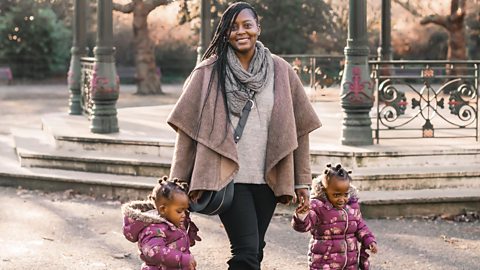
ãI always knew that when I had children I was going to be intentional in ensuring they would see representations of themselves. My twin daughters are only 3, so too early for conversations about being young black women, and the perceived stereotypes or labels that could be attached to them. So until that time comes, and it will, I ensure they see positive representations of black women and girls every day. They have dolls with afro hair like their beautiful afros. They watch cartoons with positive representations of black families. The books we read have diverse characters so they can see the diversity of the world and will learn to appreciate it.ã

Chaneen
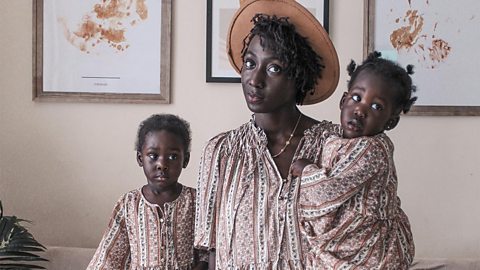
ãOur girls are very young but my partner and I are already thinking about how weãll talk to them about race and racism. Heãs more open, more inclined to talk, while I find itãÎ well, even now, it feels like a massive emotional labour to delve into it. When I was young, I couldnãt understand why it seemed to bring so much anger and rage, no positives.
Jasmineãs almost 3 and if sheãs going to nursery or a playgroup, I always make sure sheãll be in a diverse setting, so that she doesnãt have to experience that feeling of not being able to relate to anyone else. We have books, toys and games that are multicultural. And for the past year, weãve been looking at a picture book about Rosa Parks together. I donãt read it to her, instead we look at the images and talk about whatãs going on. Itãs led by her and what she sees. All very innocent. No negativity.
Now with the Black Lives Matter movement, itãs become more prominent that all parents need to make their children aware. So, Iãve started to change how I talk about the book, introducing questions like: ãCan you see that these are white children?ã. By pointing out things, Iãm slowing building up to deeper conversations. I donãt want to give Jasmine a distorted sense of reality that she needs to be fearful. Or for her to feel she needs to be aware of every white person she interacts with. I want her to feel secure in her ãeverydayã.ã

Yasmin
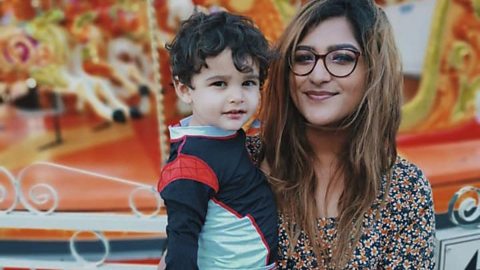
ãTwo weeks after my sonãs second birthday, he was spat at and racially abused in his pushchair by a grown man, a complete stranger, who appeared to have an issue with us being an interracial family. It really highlighted to me the inequality in society, and how early it begins ã something that some parents have never had to think about. We received lots of questions in the following days about how others can help to show solidarity and allyship in not just extreme situations as this one, but everyday micro-aggressions. My answer is teach your children to love, show them everyone is equal ã make this clear in the media they consume, and ensure their books, TV shows and YouTube videos show diversity. But inclusion isnãt the end of it. Itãs important to explain to your children that some people are hateful and who they are hateful against, and why thatãs wrong. Itãs not something we can cover with love and hope it goes away. It will only disappear with a new generation of anti-racists, and that begins with us, the parents.ã

Dorota and Nigel
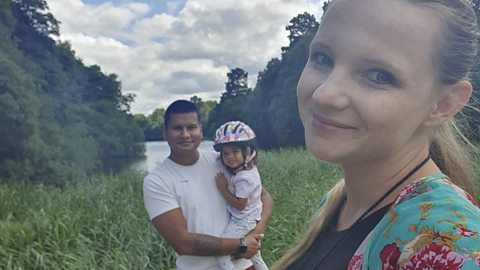
ãOur 3-year-old daughter Joules loves Disney films and singing, dressing up, and replaying the scenes. A few months ago, she began to say that she wanted her hair to be light and skin to be White like Snow White, and Mummy. Since then, weãve swapped the older Disney productions for newer, more diverse ones like The Princess and the Frog and Moana. Itãs really important to us that Joules knows about her roots and is proud from an early age. She understands she has a little of Mummy and a little of Daddy's skin colour, hair colourãÎ and is a mix of what makes us, us. Itãs our job to show her that skin colour doesn't define a person, a hero, or a princess for that matter. There are lots of pressures in young peopleãs lives, including the media and as parents, we have a responsibility to filter what's harmful and be present. We talk with Joules about her observations, and try to explain that everyone is different, and this is what makes each of us special, and unique.ã

Robert
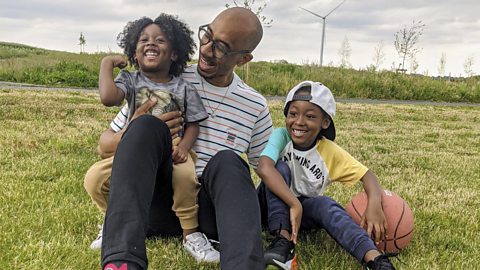
ãRaising black children comes with all the beautiful and exciting expectations of raising any other child. We also deal with the same stresses and worries all children can bring. However, what differs is that we have a thick layer of racism to navigate and it's always present and at the forefront of our minds. It's dangerous for us not to think about it. Not only do we have to consider how and when we talk to our children about racism, and what lies ahead for them, but also simple things like having to research a country's racism record to check if weãd be comfortable going there on holiday, hunting for books or TV shows where they can see at least one person who looks like them, thinking about damaging comments or attitudes they might face from children, teachers and parents at school or what box they will be forced into as they grow up. Our hopes and dreams are the same as other parents, but our reality is very different. One day it will change, but for now it remains our priority to prepare them appropriately.ã

Memuna
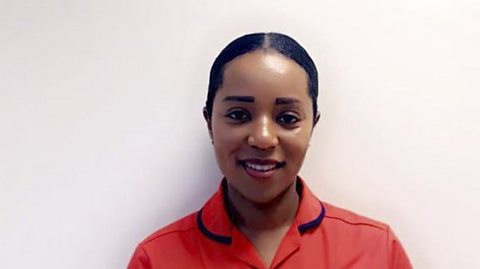
ãHaving open and honest conversations is so important. We instil love in our children: for themselves, their skin colour and their hair and also for everybody around them. We stress that no one looks the same and that the worldãs better for this diversity. And we talk about the importance of educating themselves ã that they shouldnãt rely on peopleãs opinions, but facts. We love the book Little Leaders: Bold Women in Black History. Most nights, we ask our girls to choose someone from it, research them and present their story back to the house.
I donãt think you should shy away from difficult discussions. My girls have seen the protests on the news. Theyãve watched films and TV shows about slavery. Theyãve chatted about injustices with their grandma. Sometimes we canãt answer their questions but weãre glad they ask them. We tell them that the strongest thing they can do is speak out and educate people around them. With this comes hope for the future."

Herrai
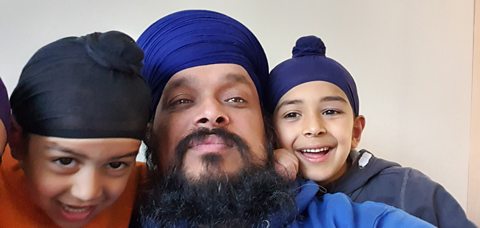
ãItãs a shame there is so much difference and bias in the world and that people are content to teach that to children. I canãt fathom it. If you leave a group of kids in a room, theyãre just going to play with each other, irrespective of what they sound like, look like or their gender. We speak Punjabi with our sons, weãre proud of our Sikh roots because thatãs the foundation of who we are. I want them to be grounded, but not live in a bubble where they do not understand other people. We want them to see the world as the multi-faceted reality that it is. One of the key Sikhi teachings is to recognise the whole human race as one. We never say to our kids: ãWhat makes you different?ã. Because if you start targeting differences, then these differences will develop in their minds. We teach them to be proud of who they are and their own personal strengths. We also tell them that ãour journey is our journeyã ã never to impose themselves on other Sikhs or people of other faiths because thatãs not what a Sikh identifies with.ã

Further advice
If you've been affected by racism or need other support with looking after your mental health, you can visit or .
To find support for a range of issues, visit °èàùôÜä° Action Line

